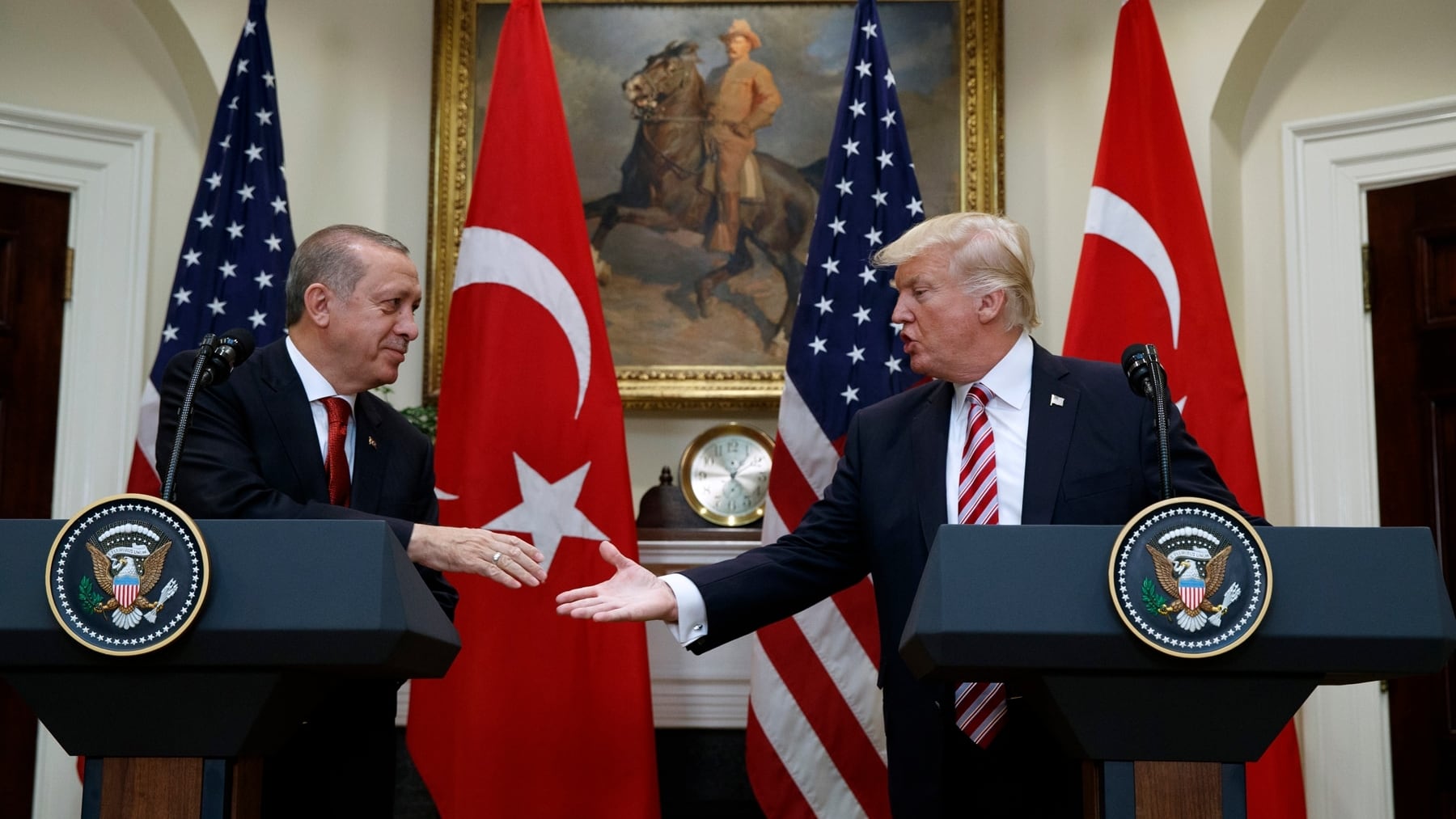WASHINGTON ― Negotiations over the 2020 National Defense Authorization Act have hit a speed bump the size of northern Syria, Senate Armed Services Committee Chairman Jim Inhofe said Tuesday.
In a brief hallway interview with reporters, the Oklahoma Republican said negotiations to reconcile the Senate and House bills "kind of are stalling. Syria has messed up a little bit of that because people think that is a more imminent problem to deal with than the NDAA, and it doesn’t have to be finished until December.”
On Wednesday, the “Big Four” ― the chair and ranking members of both House and Senate Armed Services committees ― were due to meet to get things moving again. Meetings between their staff directors were ongoing over the two-week recess that ended Tuesday, Inhofe said.
Ahead of Wednesday’s closed-door huddle, Inhofe did not say whether the lawmakers would aim to insert Syria-related language into the bill, but he did not rule it out either.
“We haven’t really had a conversation on Turkey and Syria in the Big Four. That has not been on the radar, but you have to keep in mind that we went to recess before all this stuff happened,” Inhofe said. “We’re going to be talking about it. We’ll be meeting tomorrow.”
On Thursday, Inhofe’s panel is scheduled to hold a closed-door hearing with Defense Secretary Mark Esper and Joint Chiefs of Staff Chairman Gen. Mark Milley in an effort to find a substantive path for Congress to help turn the crisis around.
“There just isn’t an easy answer for that, and that’s why we’re having the hearing," Inhofe said.
RELATED

Wednesday’s NDAA meeting was likely to focus on differences between the bill passed by the Democratic-controlled House and the Republican-controlled Senate. Inhofe said there is a list of six outstanding issues that lawmakers must iron out before the end of the calendar year.
“It’ll be before Dec. 30 because it has to be, and for 58 years it has been,” Inhofe said. Inhofe has grown increasingly pessimistic since he set an aggressive schedule last month.
The talks come as the administration scrambles to contain the fallout after President Donald Trump decided to pull U.S. troops back from northern Syria, spurring Turkey to launch a military operation against Kurdish forces who fought the Islamic State group alongside the United States.
Trump has faced bipartisan criticism for the decision ― and from the Big Four to varying degrees. Critics say Trump’s decision betrays the Kurds and benefits Russia, Iran, the government of Syrian President Bashar Assad and the remnants of ISIS.
Congress is teeing up a resolution to condemn that decision as well as various sanctions proposals targeting Turkey.
RELATED

Last week, House Armed Services Committee Chairman Adam Smith, D-Wash., condemned Trump’s decision as “a catastrophic mistake” that “sends the message that the U.S. is an unreliable partner in the fight against terror, with our own President opening the door for our adversaries to take the lead on the global stage against us.”
House Armed Services Committee ranking member Rep. Mac Thornberry, R-Texas, is a co-sponsor of legislation that places sanctions on Turkey. The other sponsor is House Republican Conference Chair Liz Cheney, R-Wyo. That bill hews with a proposal from Sens. Lindsey Graham, R-S.C., and Chris Van Hollen, D-Md.
Senate Armed Services Committee ranking member Sen. Jack Reed, D-R.I., is among lawmakers supporting a resolution rebuking Trump’s decision. In a statement last week, Reed, who is also a member of the Senate Intelligence Committee, called for “hearings with military, diplomatic, and intelligence officials to understand how this decision was made and the consequences for Syria, the region, and our ability to work with partners in the future."
“President Trump needs to explain this hasty retreat in more than a tweet," Reed said. "He should address the American people and lay out a serious strategy.”
Joe Gould was the senior Pentagon reporter for Defense News, covering the intersection of national security policy, politics and the defense industry. He had previously served as Congress reporter.







